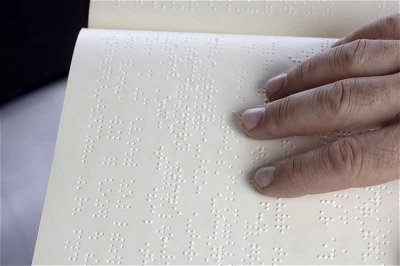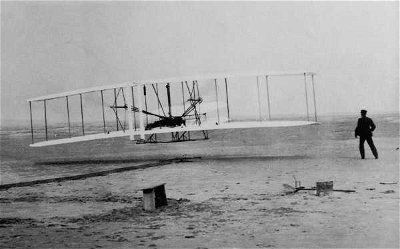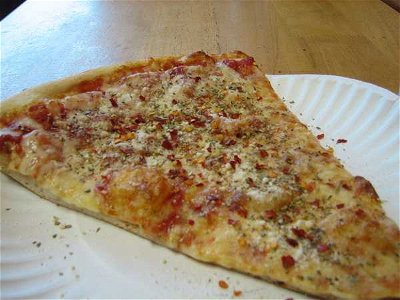18. Charles Darwin,Jane Goodall,Marie Curie,Carl Linnaeus,Alessandro Volta,Dmitri Mendeleev,Louis Pasteur,Neils Bohr,Rosalind Franklin,Gregor Mendel
From Quiz People Who Shaped The World: Scientists
Answer:
Carl Linnaeus (1707-1778) was a Swedish biologist who published the binomial nomenclature, which is the modern system of naming organisms. Because of this work, he was known as the "father of modern taxonomy". Such was his impact on this subject that the abbreviation L. is used to indicate Linnaeus as the authority for a species' name in botany and zoology.
Alessandro Volta (1745-1827) was an Italian physicist and chemist and a pioneer of electricity and power. He was the inventor of the electric battery and discovered methane. Volta proved that electricity could be generated, which debunked all other theories at the time. His discoveries have contemporaneous merit as electricity derived from renewable sources needs to be stored in batteries to provide a continuous supply to meet increased demand.
Charles Darwin (1809-1882), an English naturalist, was best known for his work in evolutionary biology. He proved that all species of life descended from a common single ancestor which became accepted as a fundamental scientific concept. His scientific contributions were considered so profound that he was honoured by burial in Westminster Abbey.
Many people believe that as Gregor Mendel (1822-1884) was an Augustinian friar and abbot of St. Thomas' Abbey in Brno (now in Czechia), and that he was not a qualified scientist. From 1840 to 1843, however, he studied philosophy and physics at the Philosophical Institute of the University of Olomouc. He became a monk because it allowed him to obtain an education without paying for it himself, as he came from a poor family. Between 1856 and 1863, Mendel's pea plant experimentation (he coined the terms "recessive" and "dominant") meant he established many of the rules of heredity, which are now called the laws of Mendelian inheritance. However, his work was not recognised until 30 years later when other scientists verified his work in 1900. This verification ushered in the modern age of genetics.
Louis Pasteur (1822-1895) was a French chemist and microbiologist renowned for his discoveries of the principles of vaccination, microbial fermentation, and clinical microbiology, the last of which was named after him. His chemistry research yielded many breakthroughs in the causes and prevention of diseases, which became the foundations of hygiene and public health which, in turn, underpinned modern medicine. Pasteur, through his works, was credited with saving millions by the development of vaccines for anthrax and rabies and anthrax. He is regarded as one of the founders of modern bacteriology, as he was the first scientist to disprove the doctrine of spontaneous generation and introduce the germ theory of infectious disease. He has been honoured as the "father of bacteriology" and the "father of microbiology".
Dmitri Mendeleev (1834-1907) was a Russian chemist. He is best known for creating the periodic table of elements. However, this magnificent piece of work was the culmination of his work on the Periodic Law. This work proved that certain elements had similar properties when grouped. These included atomic radius, ionization energy, electron affinity, electronegativity, valency, and metallic character. This work informed the correction of then-accepted properties of known elements, and it also predicted the properties of three elements that were not yet discovered (germanium, gallium and scandium).
Maria Salomea Sokolowski-Curie (1867-1934), known as Marie Curie, was a Polish and French physicist and chemist who coined the term radioactivity, and was a pioneer researcher in the field. She was the first woman to win a Nobel Prize, the first person to win a Nobel Prize twice, and the first person to win a Nobel Prize in two scientific disciplines. She and her husband, Pierre Curie (tragically killed in 1906), were the first married couple to win the Nobel Prize. In 1906 she became the first woman professor at the University of Paris. She discovered the elements polonium and radium. She was the world's first person to study the treatment of cancers with the use of radioactive isotopes.
Niels Bohr (1885-1962) was a Danish physicist who made major fundamental contributions to determining atomic structure (Bohr developed the Bohr model of the atom) and quantum theory. For this work, he received the 1922 Nobel Prize in Physics. Less known was that Bohr was also a philosopher and a promoter and advocate of scientific research. During WWII he helped refugees escape from Nazism which caused the Nazi regime to seek his arrest. He fled to Sweden and then Great Britain, where he became part of the British mission to the Manhattan Project. After the war, Bohr worked tirelessly on advocating international cooperation on nuclear energy.
Rosalind Elsie Franklin (1920 -1958) was a British chemist specialising in X-ray crystallography, which was paramount in the understanding of the molecular structures of DNA (deoxyribonucleic acid) and RNA (ribonucleic acid). She also received acclaim for her work on the structure of viruses, coal, and graphite. Franklin's contributions to the discovery of the structure of DNA were largely unrecognised, but Watson and Crick would never have received the Nobel Prize for chemistry without Franklin's prior work on its structure as determined by X-ray crystallography. Whether she would have received a 'share' of the Nobel Prize is a moot point. There was a pre-1974 rule which dictated that a Nobel prize could not be awarded posthumously. (Franklin died aged 37 from ovarian cancer). Her student, Aaron Klug, continued her research, winning the Nobel Prize for Chemistry in 1982.
Dame Jane Goodall, born Valerie Jane Morris-Goodall in 1934, is a prominent zoologist and anthropologist. She is considered the world's foremost expert on chimpanzees. Her work has explained aspects of human behaviour. She was appointed a United Nations Messenger of Peace in 2002, and is an honorary member of the World Future Council.
Influential People: the 'Non-Scientists':
Elizabeth Fry (1780-1845) was a Quaker and social reformer from England long before social reform was recognised. She was called the 'Angel of Prisons' for her continuous campaign to make conditions in prisons more humane for the inmates. She strove to improve the British hospital system and in particular treatment of those with mental health disorders.
Florence Nightingale (1820-1910) led the first official team of British military nurses to Turkey during the Crimean War. Nightingale tended to the sick, but also reported back to the army medical services on how to reduce avoidable deaths. Nightingale was possibly responsible for recognising nursing as a profession.
Konrad Adenauer (1876-1967) was a German statesman who served as the first chancellor of the Federal Republic of Germany from 1949 to 1963, and rebuilt West Germany as a responsible, democratic country. As an advocate for unity in Europe, he signed the Treaty of Rome in 1957, and became known as one of the "Founding Fathers of the European Union".
Simone de Beauvoir (1908-1986) was a French existentialist philosopher, social theorist, author, and feminist activist. She was nominated for the Nobel Prize in Literature in 1961, 1969, and 1973. Along with her long-time partner, Jean-Paul Sartre, she was a formidable force in influencing the culture of post-war France.
Lech Walesa (born 29 September 1943) was a Polish statesman and trade unionist/activist. He was the president of Poland between 1990 and 1995, and subsequently became a Nobel Peace Laureate. After winning the 1990 Polish Presidential election, Walesa became the first democratically elected president since 1926, and the first-ever Polish president elected by popular vote. As a shipyard electrician, he became the leader of the Solidarity movement, and led an ultimately successful pro-democratic effort that ended Communist rule in Poland in 1989, and was a major reason for the end of the Cold War.










 Quick Question
Quick Question